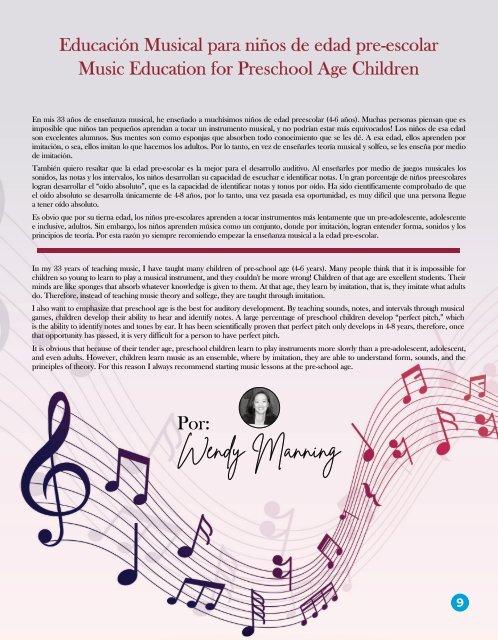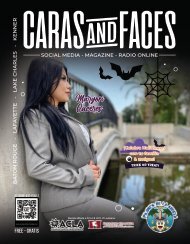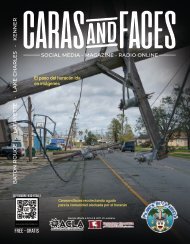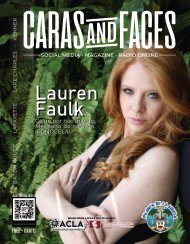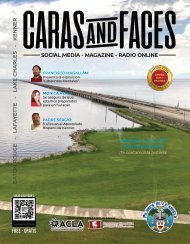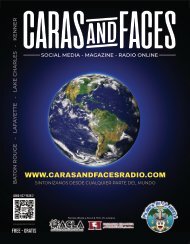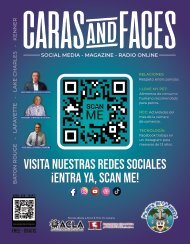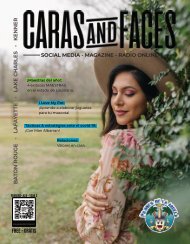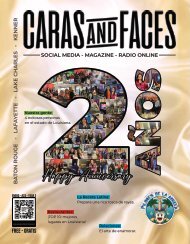You also want an ePaper? Increase the reach of your titles
YUMPU automatically turns print PDFs into web optimized ePapers that Google loves.
Educación Musical para niños de edad pre-escolar<br />
Music Education for Preschool Age Children<br />
En mis 33 años de enseñanza musical, he enseñado a muchísimos niños de edad preescolar (4-6 años). Muchas personas piensan que es<br />
imposible que niños tan pequeños aprendan a tocar un instrumento musical, y no podrían estar más equivocados! Los niños de esa edad<br />
son excelentes alumnos. Sus mentes son como esponjas que absorben todo conocimiento que se les dé. A esa edad, ellos aprenden por<br />
imitación, o sea, ellos imitan lo que hacemos los adultos. Por lo tanto, en vez de enseñarles teoría musical y solfeo, se les enseña por medio<br />
de imitación.<br />
También quiero resaltar que la edad pre-escolar es la mejor para el desarrollo auditivo. Al enseñarles por medio de juegos musicales los<br />
sonidos, las notas y los intervalos, los niños desarrollan su capacidad de escuchar e identificar notas. Un gran porcentaje de niños preescolares<br />
logran desarrollar el “oído absoluto”, que es la capacidad de identificar notas y tonos por oído. Ha sido científicamente comprobado de que<br />
el oído absoluto se desarrolla únicamente de 4-8 años, por lo tanto, una vez pasada esa oportunidad, es muy difícil que una persona llegue<br />
a tener oído absoluto.<br />
Es obvio que por su tierna edad, los niños pre-escolares aprenden a tocar instrumentos más lentamente que un pre-adolescente, adolescente<br />
e inclusive, adultos. Sin embargo, los niños aprenden música como un conjunto, donde por imitación, logran entender forma, sonidos y los<br />
principios de teoría. Por esta razón yo siempre recomiendo empezar la enseñanza musical a la edad pre-escolar.<br />
In my 33 years of teaching music, I have taught many children of pre-school age (4-6 years). Many people think that it is impossible for<br />
children so young to learn to play a musical instrument, and they couldn't be more wrong! Children of that age are excellent students. Their<br />
minds are like sponges that absorb whatever knowledge is given to them. At that age, they learn by imitation, that is, they imitate what adults<br />
do. Therefore, instead of teaching music theory and solfege, they are taught through imitation.<br />
I also want to emphasize that preschool age is the best for auditory development. By teaching sounds, notes, and intervals through musical<br />
games, children develop their ability to hear and identify notes. A large percentage of preschool children develop “perfect pitch,” which<br />
is the ability to identify notes and tones by ear. It has been scientifically proven that perfect pitch only develops in 4-8 years, therefore, once<br />
that opportunity has passed, it is very difficult for a person to have perfect pitch.<br />
It is obvious that because of their tender age, preschool children learn to play instruments more slowly than a pre-adolescent, adolescent,<br />
and even adults. However, children learn music as an ensemble, where by imitation, they are able to understand form, sounds, and the<br />
principles of theory. For this reason I always recommend starting music lessons at the pre-school age.<br />
Por:<br />
Wendy Manning<br />
9


